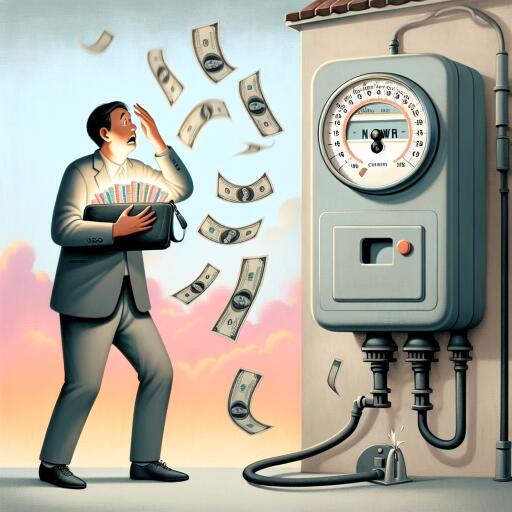New Electricity Tariffs Announced: How Much Will Your Bill Increase?
As the nation grapples with evolving economic challenges, the announcement of new electricity tariffs starting from July 2024 marks a significant turn in the management and pricing of electricity across the country. The Power Division has laid out changes in the tariff rates that would affect the masses in distinct ways. With an overarching aim to balance the economic scales and provide some relief to the power sector, these adjustments come with insights into what the future holds for consumer electricity bills.
In a substantive move to ease the transition into these new tariffs, the government has announced a hefty subsidy package. To the tune of Rs440 billion, this subsidy aims to soften the blow for consumers, particularly focusing on making the shift less burdensome for the economically vulnerable sections of society. The detailed breakdown from the Power Division reveals that the most significant impact of the hike will be absorbed by those in higher economic brackets, aiming to foster a sense of economic equity in utility costs.
Specifically, for 16.8 million (equivalent to 58%) of poorer domestic consumers, the tariffs will see an uptick of less than 2%. This is a deliberate measure aimed at protecting the most vulnerable from steep increases in their monthly bills. On the other hand, the richer segment comprising 42% of consumers is set to experience an average surge of about 9% in their electricity expenses. This targeted adjustment serves as a reflection of an effort to distribute the financial responsibilities of sustaining the electricity sector more equitably among the populace.
Despite the imminent increases, there’s a silver lining as suggested by the Power Division. An optimistic projection indicates a potential downturn in electricity rates following the tariff adjustments in the long term. By January 2025, it is anticipated that electricity rates for all consumers will average approximately 3% lower than what was recorded in June 2024. This forecast hinges on expected improvements in the national economy and the subsequent positive effects on the power sector’s financial health.
The necessity of introducing fixed charges has been highlighted, considering the structure of the power sector’s economics – with a staggering 75% of its costs being fixed. This move underscores a strategic shift towards aligning the pricing mechanism more closely with the actual cost dynamics of power generation and distribution.
Furthermore, in a concerted effort to boost national industry, the Power Division has unveiled a significant reduction in the financial burden on the industrial sector. A remarkable concession of PKR 150 billion has been announced, marking a pivotal step towards energizing the industrial backbone of the economy.
The upcoming changes are pending a formal endorsement, with the Power Division noting that an official notification of the new electricity prices will be released following a hearing by the National Electric Power Regulatory Authority (NEPRA). This procedural step is crucial for legitimizing the tariff revisions and ensuring that all stakeholders are on the same page regarding the future financial landscape of electricity consumption in the country.
As the nation prepares for these changes, the announcement paints a picture of a carefully balanced approach, aiming not only to address immediate economic pressures but also to lay down a sustainable pathway for the power sector. As rates adjust and subsidies come into play, the evolving narrative of electricity tariffs in the country continues to unfurl, with the promise of easing into a more equitable and economically viable future.
